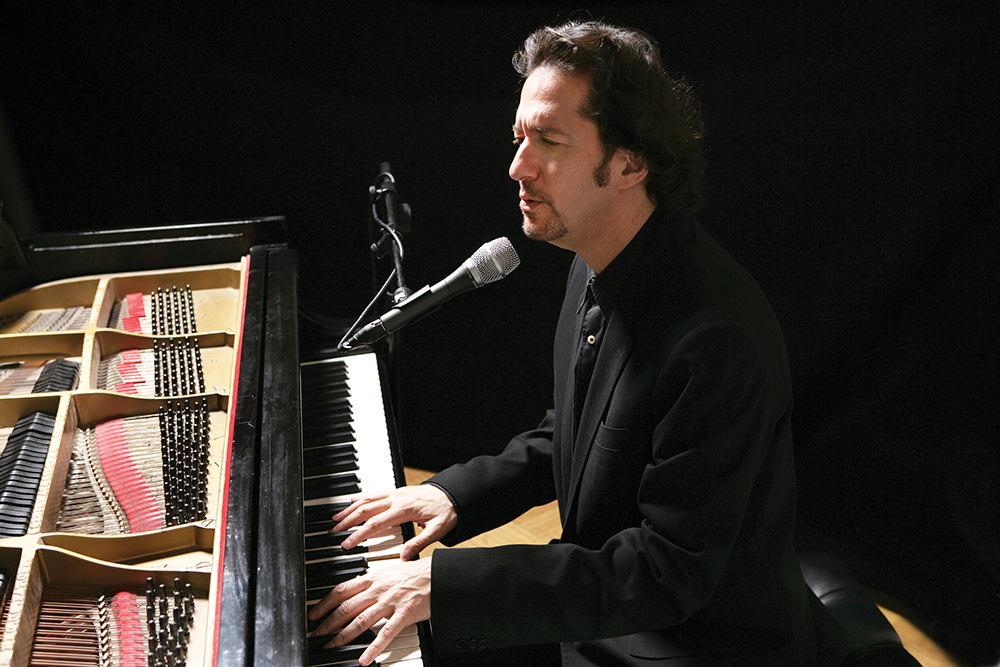Memphis has produced its share of jazz legends, from Lil Hardin Armstrong to the famed graduates of Manassas High School like Hank Crawford, Charles Lloyd, and George Coleman. Now, an autobiography released last year reveals a new name to be added to that list: Michael Wolff, a pianist who emerged from the Memphis Jewish community. Though his name may not be as familiar as the others, readers may have unwittingly seen him perform more than all the rest put together, at least those who were fans of The Arsenio Hall Show back in the ’90s — Wolff was the show’s musical director.
Yet that achievement hardly does justice to Wolff’s musical accomplishments or the fascinating tale of his life. That’s what makes his memoir, On That Note: A Memoir of Jazz, Tics and Survival (Redwood Publishing), so enlightening, as he details the highs and lows of one completely devoted to jazz. Indeed, it’s practically a how-to book for those who hope to rise above any obstacles to become lifers in the world of music.
“When I was four years old,” Wolff writes, “my father had my maternal grandmother’s big upright piano shipped from Covington, Louisiana, to our little house in Memphis. He stuck it right in the living room and immediately taught me ‘St. Louis Blues.’ ‘I hate to see that evening sun go down,’ he’d sing as I accompanied him. I loved playing on that old piano, and it’s still in the family. It’s beat to shit but has a lot of the original ivory keys on it, though they’re pretty chipped up.”
That passage evokes the flavor of Wolff’s prose, sprinkled as it is with the casual profanities of gigging musicians who call it like they see it. Such language, though, should not be conflated with the Tourette’s syndrome that Wolff has grappled with all his life. As Wolff puts it, his experience with Tourette’s has chiefly involved nervous tics, noisemaking, or eye rolls, but typically not “the tic that involves yelling out inappropriate words in public for no apparent reason. Thanks to television, this behavior is probably what most people think of when they hear the term Tourette’s.” Yet the other “habits,” as he and his family called his symptoms, still stirred up feelings of shame and alienation as the young Wolff grew up in Memphis.
“I was lucky to have parents who allowed me to be myself,” he writes. “They accepted me and my Tourette’s, and both of them encouraged me to become a musician.” He needed no great encouragement. As he puts it, “The piano was really my saving grace. Just touching the ivory keys on our old upright soothed me and deactivated my need to tic — to make noises, to shrug and blink and snort and cough and clear my throat and clench my anus. The energy of the music swam up my arms, dove into my body, and protected me from the evil compulsions I was trying to conquer.”
And music was everywhere, from his father’s collection of jazz records to the Black gospel and blues he’d hear in Memphis or when visiting family in Indianola, Mississippi. He was more open to such experiences than most kids his age, for, as he writes, “Jews in the South — and I’m including the big cities, like Memphis, now — were comfortable around Black people, but they didn’t view them as equals. My father and mother were ahead of their time in that way. In 1959, my parents held one of the first civil rights meetings in their home, with a group of whites from their temple and a group of Blacks from a local Black church.”
From there, his parents moved to Berkeley, California, where his mother threw herself into progressive activism, and where young Michael was exposed to brilliant jazz players like Bill Evans. Ultimately, he went on to work with the likes of Cannonball Adderley, Cal Tjader, and Sonny Rollins, as well as leading his own groups and releasing 21 albums. Through it all, he never lost touch with the Bluff City, and he counts Representative Steve Cohen as a close friend. “His father was a pediatrician when my dad was an intern in Memphis. Later, I met Steve through one of my best friends, Warren Zevon,” he tells the Memphis Flyer. “We have been friends for decades.”
